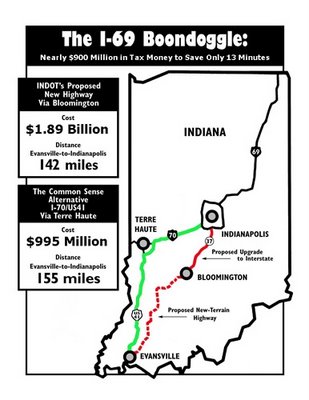 The August Review--a "Global elite research center" exposing America's "super-elitists" --tracks the evolving North American Union, including the NAFTA superhighway.
The August Review--a "Global elite research center" exposing America's "super-elitists" --tracks the evolving North American Union, including the NAFTA superhighway.
Founder and editor Patrick M. Wood (right) collaborated with the late Dr. Antony Sutton, prolific author who exposed Wall Street's secret funding of the Third Reich, Bolshevik Revolution and, more recently, the war efforts of North Korea and North Vietnam against the US. --Editor.
==
Is SPP an Executive Branch Coup d'Etat?
The North American Union (aka
Security and Prosperity Partnership) is being administered and championed by the Secretary of Commerce, with help from other cabinet position posts. This article answers the SPP's new defense,
SPP Myths vs. Facts.
Is SPP an Executive Branch Coup d'Etat?
Secretary of Commerce Carlos Gutierrez has declared advancing the Security and Prosperity Partnership of North America to one of his top goals, writing in a letter archived on the Department of Commerce website that “I have made the SPP one of my top priorities and will utilize the talents and expertise of the people across the Department of Commerce to ensure the SPP is a success.”
Secretary Gutierrez began his letter with obvious enthusiasm:
I would like to bring your attention to an exciting new initiative that is a high priority for President Bush, me, and the entire Bush Administration: the Security and Prosperity Partnership of North America (SPP). This initiative was announced on March 23, 2005, by President Bush, President Fox of Mexico, and Canadian Prime Minister Paul Martin. It establishes the framework under which the three countries will seek to create a safer and more prosperous North America over the coming years.
Secretary Gutierrez next laid out an explanation of how “security” and “prosperity” fit together, using language that carefully replaced reference to the United States of America to language embracing the concept of “North America” as an economic and political reality.
First, Secretary Gutierrez addressed “security.”
The SPP is built around the two, complementary objectives of greater security and prosperity. In the security sphere, we will aim toward a common security strategy focusing on:
- Securing North America from external threats;
- Preventing and responding to threats within North America; and
- Streamlining the secure and efficient movement of legitimate and low-risk traffic across our shared borders.
Then, Secretary Gutierrez logically moved to “prosperity.”
In the prosperity sphere, the countries will focus on: Improving productivity;
-
Reducing the costs of trade; and
-
Enhancing the joint stewardship of our environment, facilitating agricultural trade while creating a safer and more reliable food supply, and protecting our people from disease.
This tautological language was designed to present objectives that looked obviously reasonable and important, almost Orwellian in their crafting. It takes attention to detail to note that the security and prosperity definitions virtually demand our borders with Mexico and Canada be erased, all in the interest of “streamlining,” “shared borders,” and “reducing the costs of trade,” all the while protecting our environment, our food, and our health.
The critical part of Secretary Gutierrez’s letter came next, however, when the Secretary of Commerce explained how tri-lateral cabinet-level working groups would be created in the three governments with a mission to rewrite a broad array of administrative laws all to be accomplished strictly within the executive branches of Mexico, Canada, and the United States.
Secretary Gutierrez enters the discussion by bragging about the importance of the role he is assigned to play:
Organizationally, I am jointly responsible for the economic, or prosperity, component of the SPP, with my Canadian counterpart, Minister of Industry David Emerson, and my Mexican counterpart, Secretary of Economy Fernando Canales. Secretary of Homeland Security Michael Chertoff, jointly with his Canadian and Mexican counterparts, is responsible for the security component. Secretary of State Condoleezza Rice, jointly with her Canadian and Mexican counterparts, will ensure that the two components are integrated and that the SPP advances our strong relations with Mexico and Canada.
This explanation of how the “working groups” were to be organized and managed proved to be more detailed even than the explanation given on SPP.gov, the website Secretary Gutierrez created within the Department of Commerce to manage this new “tri-lateral initiative.”
Nowhere in the letter does Secretary Gutierrez make any reference to the U.S. Congress. Instead, he invites inquiries to Geri Word who works within the International Trade Administration (ITA) office of the Department of Commerce, giving out her phone number as 202-482-1545 and her email as geri_word@ita.doc.govThis email address is being protected from spam bots, you need Javascript enabled to view it .
A new “Myths vs. Facts” addendum has been added to the SPP.gov website, representing an attempt to deflect criticism. Here the Department of Commerce attempts to discredit the “myth” that “The SPP was an agreement signed by Presidents Bush and his Mexican and Canadian counterparts in Waco, TX, on March 23, 2005.” In the “Fact” response, SPP.gov openly admits that the SPP declared in Waco on that date was little more than a press release:
The SPP is a dialogue to increase security and enhance prosperity among the three countries. The SPP is not an agreement nor is it a treaty. In fact, no agreement was ever signed.
The goal of the “Myth vs. Facts” seems to be to reposition the entire SPP process as a mere “dialogue.” If the Department of Commerce were to openly admit that SPP.gov is rewriting U.S. administrative law, Secretary Gutierrez would need some the Constitutional justification to underpin his enthusiasm for combining with Mexico and Canada. Are we to seriously believe that pure dialogue, an exchange of intellectually challenging tri-lateral ideas is the reason Secretary Gutierrez has boasted that advancing SPP is one of the most important objectives of his office?
Working groups rewriting U.S. administrative laws in areas ranging from e-commerce, to steel policy, to energy policy, to aviation control, to border crossing policy, to environment (to mention just a few) are arguably creating the legal infrastructure for a regional government to emerge by administrative fiat.
Yet, there is no provision in the U.S. Constitution that justifies the executive branch to rewrite U.S. administrative law without formulating a treaty that must be submitted to the Senate for ratification by a two-thirds vote. These are the cold realities Secretary Gutierrez and SPP.gov seek to side-step with their reassuring “security” and “prosperity” platitudes.
Robert Pastor, the American University professor who is the leading contender for the title “Father of the North American Union” has provided much of the intellectual arguments for the logic underlying SPP. Pastor has argued for an incremental process of creating a North American Union, beginning with a “dialogue” that sounds uncomfortably like the politically correct definition of its mission as presented by SPP.gov itself.
Pastor in an article entitled “ NAFTA is Not Enough,” argued for an incremental process that could head toward the creation of the NAU, all the while providing cover for participating politicians and governments to deny that creating the NAU was their goal. In this essay, Pastor wrote:
NAFTA is Not Enough,” argued for an incremental process that could head toward the creation of the NAU, all the while providing cover for participating politicians and governments to deny that creating the NAU was their goal. In this essay, Pastor wrote:
Europe has struggled with these questions for nearly fifty years, and its members still have not clearly decided on their destination. NAFTA is only eight years old, and its project from the beginning was much more modest than the EU’s. While the three governments of North America are unlikely to step into the debate on long-term goals at the current time, nongovernmental organizations, research institutes, and universities should fill the void with new ideas and old-fashioned cross-border dialogue.
Pastor begins the next paragraph by advising “the likely path the three governments are to take is the status quo with modest adjustments.” He concludes the paragraph by commenting: “All three governments could surprise themselves by taking a great leap forward, but this seems possible only if there is a dramatic crisis of some kind.”
Dr. Pastor seems to prescribe that a fear formula is all that is needed for the American people need to begin begging SPP to produce the NAU right now. Pastor openly writes as if the next 9/11 terrorist attack or a future outbreak of some health epidemic such as the avian flu could be just what the NAU doctor ordered as the prescription for the American people to abandon sovereignty in favor of super-regional government control, all in the interest of “security” leading to “prosperity.” Or, is it “prosperity” which necessitates more “security” via surrender to Big Brother government?
Disinformation and deniability are the two key concepts of the SPP modus operandi. We have to look no further than the “Myth vs. Facts” debunking document recently posted on the SPP.gov website to see the anticipated denial:
The SPP in no way, shape or form considers the creation of a European Union-like structure or a common currency. The SPP does not attempt to modify our sovereignty or currency or change the American system of government designed by our Founding Fathers.
If SPP.gov is not aimed at a massive re-write of U.S. administrative law in a tri-lateral “harmonized” and “integrated” format, than why not just shut SPP.gov down? As Robert Pastor pointed out, “dialogue” can occur within universities. Reading the SPP.gov attempt at denial, we are reminded of Réné Magritte’s famous painting entitled “Ceci n’est pas un pipe.”
When the “dialogue” begins to take place in Cabinet-level tri-lateral executive branch committees, patriots are well advised to be concerned that an executive branch coup d’etat may be underway, all in the name of a North American tri-lateral “partnership” devoted to nothing more than “security” and “prosperity.” Or, as Aldous Huxley might ask, would someone please pass the soma?
Reprinted with permission.
Dr. Corsi received a Ph.D. from Harvard University in Political Science in 1972. He has written many books and articles, including co-authoring the #1 New York Times best seller, "Unfit for Command: Swift Boat Veterans Speak Out Against John Kerry" (along with John O'Neill), "Black Gold Stranglehold: The Myth of Scarcity and the Politics of Oil" (along with Craig R. Smith), and "Atomic Iran: How the Terrorist Regime Bought the Bomb and American Politicians."
His latest book published with co-author Jim Gilchrist, the founder of The Minuteman Project, entitled: "Minutemen: The Battle to Secure America's Borders" (World Ahead Publishing).
In 1981, he received a Top Secret clearance from the Agency for International Development, where he assisted in providing anti-terrorism training to embassy personnel.
Dr. Corsi's columns currently appear on HumanEvents.com. He lives with his family in New Jersey, where he is a full-time writer.
 "Invasive alien species" and "evolution by stealth" are but some of the topics Pentagon, EPA, FDA, USDA and Commerce Department officials are discussing with their Mexican and Canadian counterparts.
"Invasive alien species" and "evolution by stealth" are but some of the topics Pentagon, EPA, FDA, USDA and Commerce Department officials are discussing with their Mexican and Canadian counterparts.


